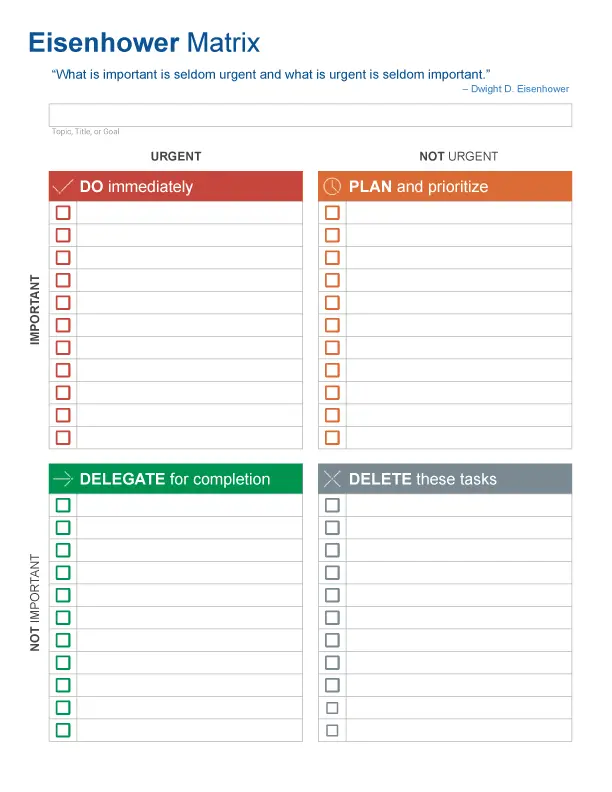Time Management
”You cannot escape the responsibility of tomorrow by evading it today.”
Effective time management is essential for managing stress. It helps you organize tasks, prioritize responsibilities, and maintain a balanced life. By using efficient time management techniques, you can reduce feelings of being overwhelmed, improve productivity, and gain control over your daily activities, which lowers your stress immensely.
Prioritization
Focus on the most important and urgent tasks first. Simple tools like the Eisenhower Matrix can help you categorize tasks by urgency and importance. Tackling high-priority tasks early prevents the buildup of urgent responsibilities, reducing the feeling of being overwhelmed by critical and time-critical things pressing down on you, so you can deal with what’s coming next thoughtfully.
Eisenhower Matrix
Time Blocking
Schedule specific blocks of time for different tasks or activities throughout the day. This structured plan ensures all important tasks get appropriate time, while also allowing for breaks and leisure. This enhances productivity and prevents burnout by promoting a balanced approach to work and relaxation. This means you still get time to do things that you want to do, while still getting the things you need to do done.
To-Do Lists
Writing down tasks and checking them off as you complete them gives a clear sense of progress. To-do lists help you keep track of responsibilities and reduce the mental burden of remembering everything. It also allows you to stack-rank priorities - if the last few things on your list need to carry over to the next day due to something urgent coming up, it’s easy to figure out where it should fit into your list, and what needs to get bumped.
Avoid Multitasking
Focus on one task at a time. Multitasking can lead to decreased productivity and more errors due to constant switching between tasks. Completing one task before moving on to the next enhances efficiency and reduces mental strain.
Delegation
For those in leadership or collaborative roles, delegating tasks to others frees up time for high-priority activities. Effective delegation involves clear communication and trust in team members’ abilities, ensuring tasks are completed efficiently, which reduces stress.
